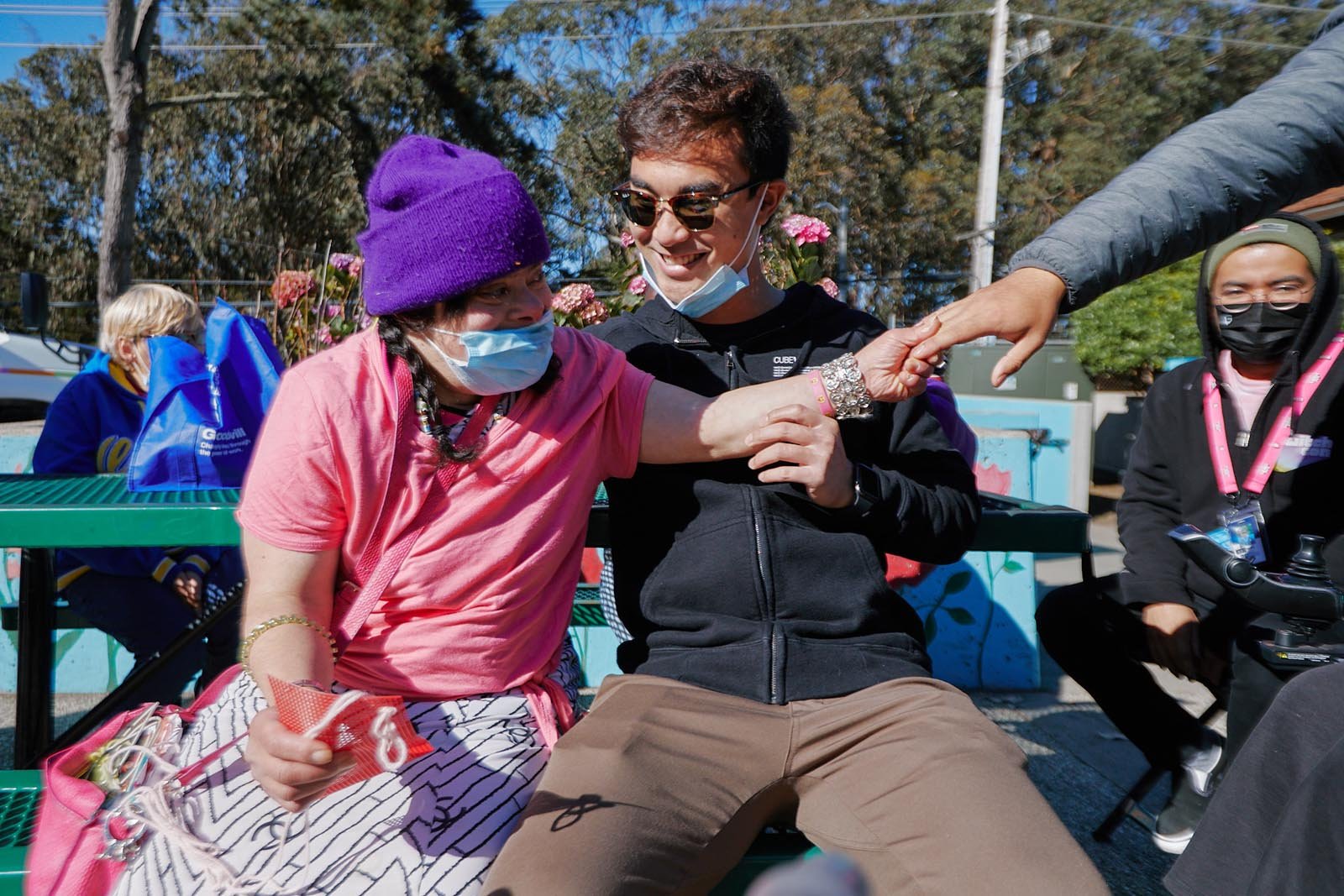The Pomeroy Center is a San Francisco nonprofit that operates as a community center for children, teens and adults with developmental disabilities and traumatic and acquired brain injuries (TBI/ABI).
Located in the Outer Sunset neighborhood of San Francisco (next to the zoo), our programming allows individuals to select from a variety of activities and opportunities that include expressive arts, adaptive computer lab, health and wellness activities, and accredited vocational training services on and off-site, all with support from dedicated and skilled staff. Volunteers and interns offer additional support throughout the year. These activities provide numerous benefits, including an awareness of healthy lifestyles, increased self-esteem, independence, learning, friendships, creativity, and pure enjoyment.
Since we are a community center, our facilities are available to the general public. We offer swim lessons and therapeutic swim classes in our warm water pool, and our gymnasium and main hall (with theater and stage) are available by reservation on our event rentals page.
Mission
The mission of Pomeroy Recreation & Rehabilitation Center is to provide recreational, vocational and educational opportunities for people with disabilities through programs and services that encourage self-expression, promote personal achievement, and lead to greater independence.
Vision
A stronger community demonstrating opportunities and respect, embracing diversity, and inspiring people with disabilities to live a full life.
The Pomeroy Center takes a person-centered (PCT) approach which recognizes the right of individuals to make informed choices and take responsibility for those choices and related risks. It builds on the strengths, talents, skills, and contributions of the individual and those who know and care about the individual. PCT is often used in the context of person-centered planning, which is a process that involves working with the person and their support network to develop a plan for achieving their goals and reflecting aspirations. The person-centered planning process is typically led by a facilitator who helps the person and their support network to identify their strengths, needs, and preferences.
There are several key principles of Person Centered Thinking, including:
Respect: valuing the person's dignity, preferences, and autonomy
Partnership: working collaboratively with the person and their support network
Listening: actively listening to the person's ideas, thoughts, and feelings
Empowerment: supporting the person to make their own decisions and take control over their lives
Diversity: recognizing and respecting the person's unique background, culture, and identity
The Person Centered Thinking (PCT) approach is different for children than adults because children, by their very nature, are in constant flux. PCT supports the well-being and development of children by establishing a respectful and trusting relationship with the child and involving their family and support network in the process. This means talking to the child, Identifying the child's strengths and preferences, developing a plan that reflects their goals and aspirations, supporting their autonomy and decision-making, and monitoring their progress toward their goals. By focusing on the child's strengths and preferences, rather than their limitations, PCT can help create an inclusive and supportive environment that empowers them to achieve their full potential.
Person Centered Thinking empowers the strengths and aspirations of adults with disabilities by encouraging their active participation in decisions regarding their lives. Through this approach, they discover what they love, find meaningful work, build relationships, and integrate with the community.
PCT aims to help individuals achieve their goals for autonomous living through collaborative planning to construct necessary supports, skill-building opportunities, and resources. For adults in particular, Person Centered Plans often include: finding the least restrictive residential setting, vocational services and volunteer work, health and wellness supports, identity and cultural affirmation groups, social groups, as well as programming for art, education, and recreation.
Get Involved
We’re always looking for volunteers and donors! Working at Pomeroy is a fun, rewarding way to get involved with the community and to support our mission of supporting children, teens and adults with disabilities. Join us today!







